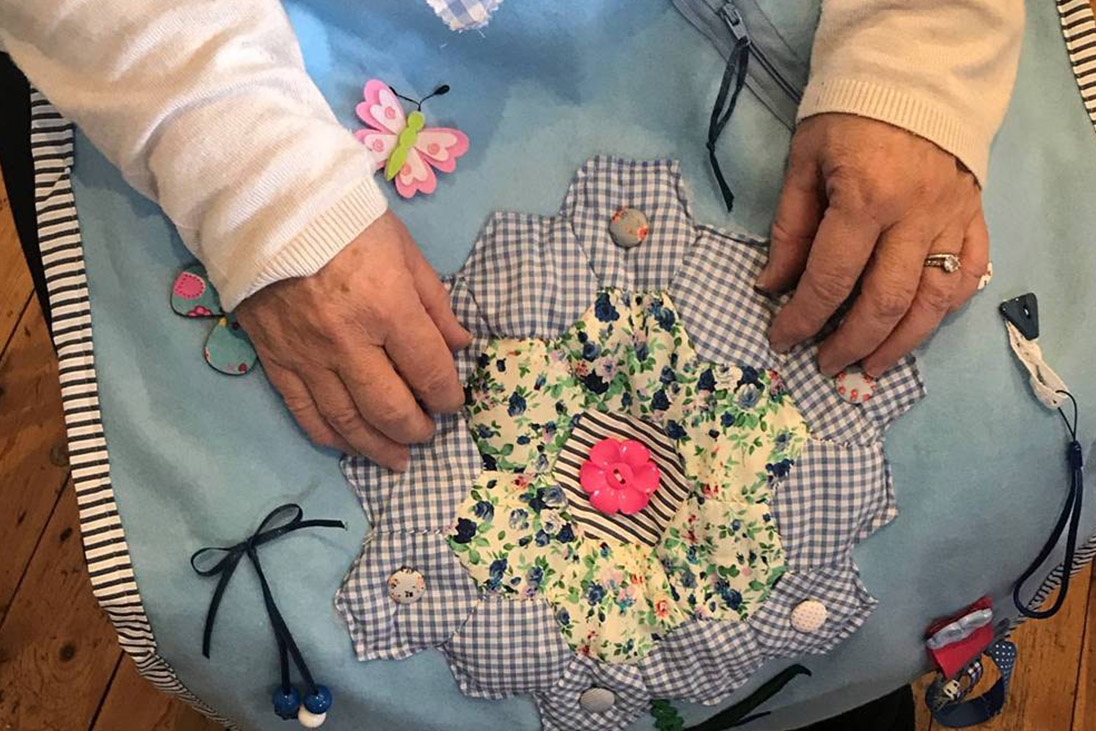More Rotary clubs in the UK and Ireland are responding to the challenge of dementia, one of the biggest health crises of the 21st century.
Sadly, there is still no cure for dementia.
However, there are ways to support those living with the disease.
One way is via memory cafés, where those with dementia and their carers share memories, enjoy activities and entertainment, or simply have a chat over a cup of tea and slice of cake.
Wadebridge in Cornwall opened the first Rotary Memory Café in 2008 and since then they have been created across Great Britain and Ireland.
Memory cafés make a significant difference to the lives of carers.
One carer who attends the Wadebridge café talked of how the activities really helped brighten her husband’s life by reminding him of his past.
She said: “Each fortnight I took a stranger to the café, but thanks to the memory chats I brought home my husband.”
Cornish Rotary member David Gregory volunteers at the Penzance Memory Café and said he would like to see more people becoming involved in supporting people with dementia.
“Too many just walk on by,” he said. “Many just look the other way, fearing that dementia may come to them, so they do not want to reach out.
“This is, of course, is very sad but, in a way, it is also understandable”.
Memory boxes are constructed for reminiscence sessions and contain therapeutic sensory fidgets or busy quilts and twiddlemuffs.
The quilts and twiddlemuffs provide sensory and tactile stimulation for the restless or fidgety hands of someone with dementia.
Each fortnight I took a stranger to the café, but thanks to the memory chats I brought home my husband.”
Rotary Narberth & Whitland in south-east Wales started a Memory Café in the local museum.
The then President, Mary Adams, approached the museum thinking it would be the perfect place for reminiscence therapy.
She ensured the museum obtained a grant as part of a community initiative.
The Memory Café in Princes Risborough in Buckinghamshire is supported by the Interact Club, where youngsters show café clients how to use the internet to inspire old memories.
Further examples of Rotary club involvement in challenging the issues of dementia include:
- Rotary Southwark in London funded six iPads for their café.
- Rotary clubs in Exeter collaborated to set up a ‘Meet and Remember’ club where they run old films and music sessions.
- Rotary Golders Green in North London works with Dementia UK and Saracens Rugby Club. They arrange for a private doctor consultation for carers at the cafés.
Geri Parlby leads the Rotary initiative in Great Britain and Ireland through the group Rotarians Easing Problems of Dementia (REPoD).
Rotary clubs are uniquely placed in their communities to provide dementia support.”
She believes that about 20% of clubs across Great Britain and Ireland are working on dementia projects, but she would love to see even more clubs get involved.
Geri said: “Whilst there are many dementia charities who can offer support and advice to those with a dementia and their carers, hands-on practical support is invaluable.
“Rotary clubs are uniquely placed in their communities to provide this.
“Rather than duplicating the work of existing organisations, we need to actively seek out and co-operate with groups to enhance rather than replace their work.”
REPoD has been working closely with the national Dementia Friends initiative.


A busy quilt for the restless or fidgety hands of someone with dementia
The ethos behind this programme is to raise awareness of the disease and its effect on individuals, their families and friends.
Many members across the country have undertaken ‘Dementia Champion’ training and are hosting awareness sessions in their communities.
Former South Wales District Governor, Maggie Hughes, is a Dementia Champion and she is on a mission to make the whole of her district dementia-friendly.
Dementia Friends awareness sessions have proved a valuable contribution to creating Dementia Friendly Communities.
Janet Cooke from Rotary Peterborough was awarded a Champions of Change Award for her work towards making Peterborough dementia-friendly.
Tavistock in Devon was the first town to register to become dementia-friendly community under the national scheme and Tavistock Dementia Alliance is chaired by Rotarian Tony Parker.
He said: “People can live independently and well with dementia for many years. To do so, it’s important to continue community and social contact, including physical and social activities.”
In Tavistock, the Alliance has already organised a new swimming club for dementia, dementia-friendly walks, tea dances, a sensory garden and even a ‘stop and chat’ checkout lane at the Tesco store in the town.
Many clubs across the country support Dementia UK a charity that trains Admiral Nurses who support dementia patients.
There are only 200 in England.
Whilst there are many dementia charities who can offer support and advice to those with a dementia and their carers, hands-on practical support is invaluable. Rotary clubs are uniquely placed in their communities to provide this.”
Wakefield in West Yorkshire has two Admiral Nurses thanks to Rotary Wakefield.
The club has raised more than £80,000 from initiatives across their area.
Helping researchers to find a cure for dementia is also part of REPoD’s new RED (Rotarians Eliminating Dementia) box partnership with Alzheimer’s Research UK where members are encouraged to donate pocket change to raise funds for research.
Tackling the issues raised by dementia, for individuals their friends and families, is no easy task.
However, by working together Rotary members and the communities they serve can really make a difference.










